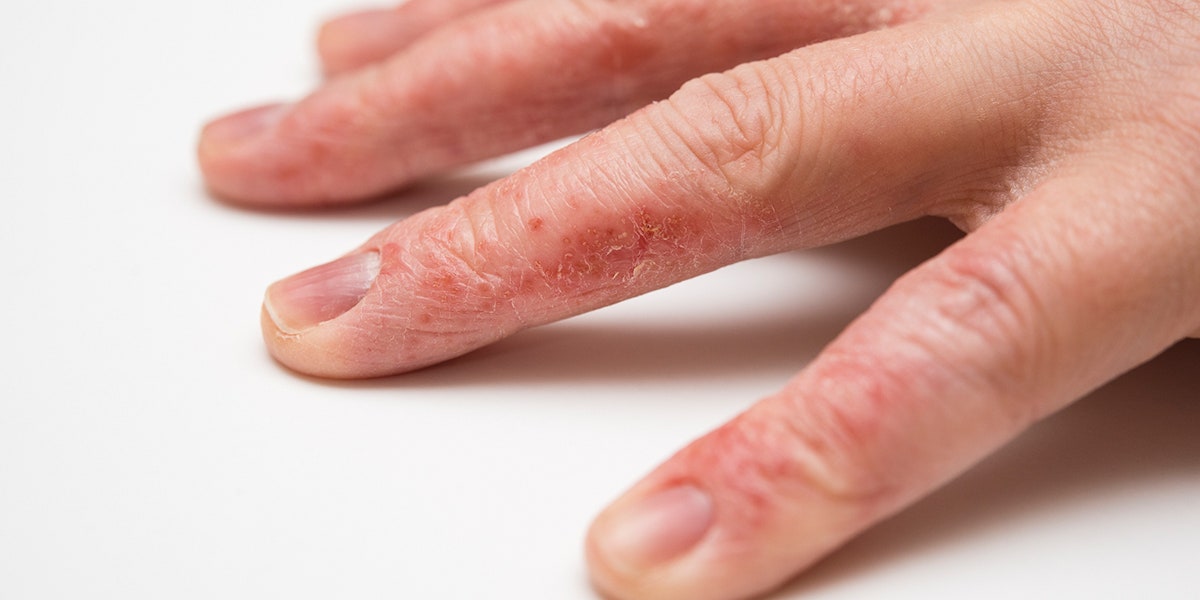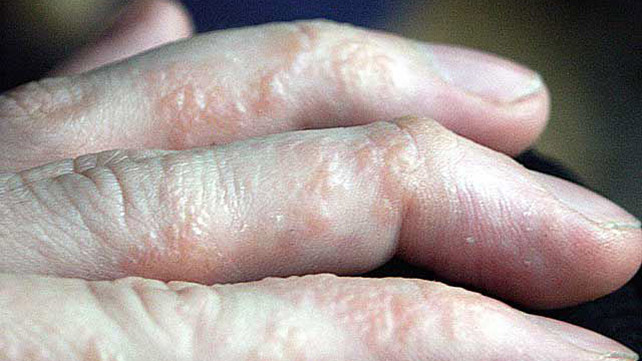
Eczema on Hands can be very embarrassing, but there is help! Eczema on the hands affects around four percent of the population but can be treated and controlled with a change in diet and daily moisturizing. Foods are often a cause for eczema, but the exact offending food varies from one person to the next.
Many times, the main cause for eczema is a high protein foods, such as wheat products, cow's milk and eggs, which cause an allergic reaction. This allergic reaction then causes the skin to itch, crack and break. Most cases of eczema tend to occur in those who have sensitive skin, and this may also contribute to the development of eczema on the hands as well.
Eczema can affect almost any part of the body, although it tends to appear in areas that are easily irritated and inflamed, such as the face and scalp. However, eczema can also be found on the feet, elbows, knees and even the groin area. For some people, the condition of eczema on their hands can lead to dermatitis and other forms of chronic skin conditions. This is why it's important to treat the condition on the skin at its source before it spreads out of control.
Eczema on the hands can have many different symptoms depending on the severity of the condition. The most common symptoms of eczema are redness and irritation, itching, and a generally flaky texture. Some patients may also find that their hands are sweating a lot. If you suspect you are suffering from eczema, you should see your doctor immediately for a correct diagnosis.
Although eczema can develop on any part of the body, the cause of this condition is mainly determined by your diet, which plays an important role in determining the outcome. To make a diagnosis, your doctor will usually do a blood test to determine what type of allergies you have to certain foods and to look for abnormalities in your immune system. After you have been diagnosed with eczema, you may be prescribed a number of medications to relieve symptoms, although you can also use natural remedies and self-medication. You can find out about possible options for treatment at home on the website https://hardwarezone.co.th/.
The first step in treating hand eczema is changing your diet. You should cut out all processed and instant foods from your diet, as well as any foods that contain gluten, soy, cow's milk, and wheat. You should also eat foods rich in vitamin A, such as strawberries, blueberries and carrots, because these fruits are essential for skin health and are known to reduce the occurrence of eczema.

Natural and organic products are also recommended
These foods are good sources of natural substances that can be used to moisturize and soothe affected areas. It's important to keep the affected areas clean and dry, but it's also important to avoid using too much soap or oil to remove excess moisture.
Eczema can be a real problem for anyone, so it is best to take the necessary steps to treat it early. In the meantime, you can try to prevent the symptoms with a change of diet and daily moisturizing. When eczema is left unattended, the condition can become chronic and result in more serious conditions.
It is also a good idea to talk to your doctor if you are not getting better and do not want to undergo further treatment. Some cases of eczema may not respond well to conventional treatments, but there are still natural solutions for eczema on hands that you can try. If you want to reduce or eliminate the symptoms and the associated itching, then the following methods may be helpful to you: apply natural oils or creams, apply essential oils to your skin, use aloe vera gel or oatmeal baths, and use certain massage techniques. In addition to these treatments, you may want to also look into taking a natural vitamin and mineral supplement, which can help boost your immune system and help you fight the symptoms effectively.
The eczema on hands can be very frustrating, but it is also a situation that you can learn to live with. Even if you have the condition on your hands, you need to be patient and learn how to deal with it so that you do not become embarrassed. There are some people who are not comfortable talking about their condition, but when you start to look at your skin objectively, you will see that it is not as bad as you think it is. With proper diagnosis, proper treatment, and the right treatment plan, you can beat eczema on hands.
With this being said, it is best to know what the causes of eczema on hands are, as well as how you can cure the condition and how to control it. When you finally learn how to get rid of your eczema on hands for good, you will finally be able to live the life that you always dreamed of living.

